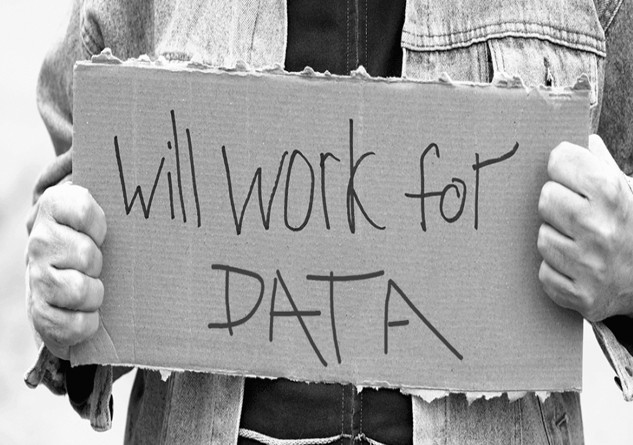Shelly Palmer
Generally speaking, there are two kinds of companies in the world: data rich and data poor. The richest of the data rich are easy to name: Google, Facebook, Amazon, Apple. But you don’t need to be at the top of this list to use data to create value. You need to have the tools in place to turn information (data) into action. That’s what the data rich do that the data poor and the data middle class do not.
The Data Rich Treat Data Like Cash
First-party data (the data collected directly from your business activities) is a core asset, and the data rich treat it like cash. They keep their data well organized, accessible and as safe as technology permits. The data rich know that data is a nascent form of currency, and while it is not precisely fungible, it can be traded.
Data Is More Powerful in the Presence of Other Data
The aphorism “The rich get richer and the poor get poorer” applies to data too. So the data rich enhance the value of their first-party data by enriching it with second-party data (other people’s first-party data). Because data is more powerful in the presence of other data (profiles are more actionable than factoids), the results often create exceptional value as well as competitive advantage.
Syndicated data collected in a legal way that allows it to be shared with third parties is generally referred to as third-party data. Some say it has “limited value” – I’m being polite, and I disagree. When obtained from a trusted provider and properly used, the data rich use third-party data to enrich their first- and second-party data. Deterministic matching of this data almost always yields actionable results.
Data Governance
The data rich set strict policies to manage the integrity, availability, usability and security of their data. Is the data accurate? Are we confident in our assessment of the data? Who will own it? Where will it be stored? Who will have rights to use it? How long will we keep it? Are there legal or regulatory concerns? The data rich have data councils that meet regularly to evaluate and modify corporate data governance policies. But the data rich also know that data governance is the job of every employee (remember, data rich companies treat data like cash). The data rich spend time and resources creating centers of excellence around data governance; the data poor do not.
Data Science: Turning Data into Action
Data rich companies have data science departments that are tasked with turning information (data) into action. These departments are built on three foundational skills: computer science, math and domain expertise.
Computer Science: The computer science required to perform data-scientific research is quickly becoming commoditized. You can find SaaS tools, purpose-built computing clouds and open-source software to do some very sophisticated computing at reasonable prices.
Math: The language of mathematics is spoken by legions of math majors graduated from institutions of higher learning worldwide. The math used for data science is well understood, and there is no shortage of trained mathematicians.
Domain Expertise: Because it is proprietary, domain expertise is the single most valuable foundational skill of data science. Data rich companies know that domain expertise is the key to extracting the most value from their data. This is an area where data poor companies can truly compete. If you ask the right questions, it is possible to cobble together enough data to get the right answers and begin your journey to data riches.
Machine Learning and AI
The data rich make their data actionable by using very sophisticated machine learning and AI algorithms. You can too. The pace of technological change is accelerating, and the basic tools for machine learning are already available to anyone who is interested in them. Go analyze some text with Monkey Learn or spend a weekend playing with Amazon Machine Learning. It’s fun and it will help you understand how quickly you will be able to use these types of tools to operate on your data.
Data-Driven Thinking
Data-driven thinking is the key to acting data rich. When the meteorologist says, “Tomorrow it will be 48 degrees with a 60 percent chance of precipitation,” some people might decide to wear a raincoat; others might bring an umbrella. You might decide to ignore the rain warning but to add a sweater to your outfit. Regardless of the conclusion, you have to translate the information (data) into action. Or, to put it another way, use the data to drive your decision-making. The data rich do this full time.






